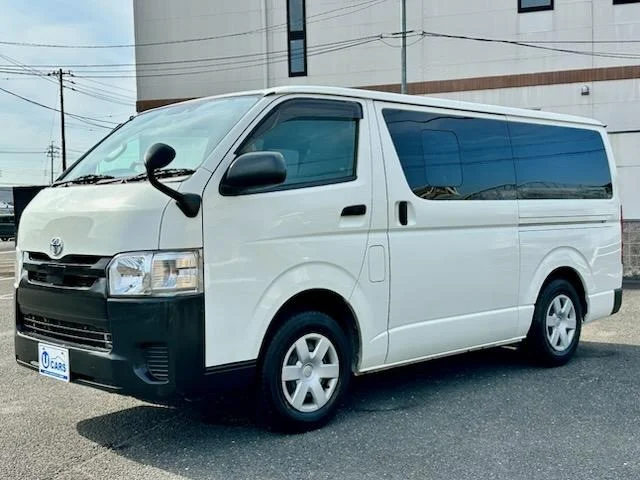Japan is one of the most trusted sources for used cars worldwide—especially for buyers in Kenya and other African countries. However, with the growing number of exporters, there’s also a rise in fraudulent websites and fake exporters targeting first-time car importers.
So how can you make sure the exporter you’re dealing with is genuine?
In this article, we explain step-by-step how to verify the authenticity of a Japanese car exporter, the red flags to watch out for, and how to safely import your dream car.
Why Verifying a Used Car Exporter Matters
Importing a car is a big investment. If you fall into the hands of scammers:
- You could lose hundreds of thousands of shillings
- Your car might never arrive
- You could end up with a stolen or tampered vehicle
- Your documents might be fake or non-compliant
The good news? There are clear steps and government-backed tools to help you verify the legitimacy of any used car exporter in Japan.
Warning Signs of a Fraudulent Exporter
Watch out for these red flags when dealing with an unfamiliar exporter:
Too-Good-To-Be-True Prices
If the price of the vehicle is far below market value, it’s likely bait to attract you. Genuine dealers price competitively, not unrealistically.
No Physical Address or Phone Number
Legit exporters always provide:
- Company registration details
- A verifiable landline or mobile number
- A physical address you can check on Google Maps
Requests for Full Upfront Payment via Untraceable Methods
Avoid exporters who insist on:
- Western Union, MoneyGram, or other non-traceable channels
- Payments to personal accounts rather than company accounts
Poor Website Design and Broken English
Genuine exporters invest in proper websites and customer experience. Scammers often copy photos and vehicle data from legitimate sites.
Steps to Verify a Japanese Used Car Exporter
Use this 7-step checklist to confirm whether the Used Car Exporter is real or fake.
1. Check If the Company is a Member of JUMVEA
The Japan Used Motor Vehicle Exporters Association (JUMVEA) is a government-recognized body that certifies used car exporters.
- Visit: https://www.jumvea.or.jp
- Go to “Members List”
- Search for the exporter’s company name
Only members in good standing are allowed to operate legally and are bound by JUMVEA’s code of conduct.
In Japan, every company has a registration number. Ask for it and verify using Japan’s National TDB (Teikoku Databank) or through their local chamber of commerce.
You can also check if the business has:
- A Japanese phone line
- Company incorporation certificate
- Tax registration documents
3. Use Whois Lookup for the Website
Use a tool like https://whois.domaintools.com to check:
- When the website was registered
- Who owns it
- The physical country and email used during registration
If the website was only registered recently, or the domain holder is hidden, proceed with caution.
4. Request Original Auction Sheets and Shipping Logs
Ask for:
- The vehicle’s auction sheet
- A JEVIC certificate (if required for your country)
- Previous buyer testimonials or shipment logs
A real exporter will provide these without hesitation.
5. Call or Video Chat With the Used Car Exporter
Don’t rely only on email. Ask to:
- Video call via Zoom or WhatsApp
- See their office or warehouse
- Speak with a real sales rep
If they refuse or delay endlessly, it’s a red flag.
6. Check Social Media and Online Reputation
Genuine companies:
- Post regularly on platforms like YouTube, Facebook, and Instagram
- Have real customer reviews and delivery proof
- Share verified shipping success stories
Search their name + “scam” or “fraud” to see what others say online.
7. Work with a Local Trusted Agent Like CarsKenya
If you’re unsure, import through an agent that has verified links with Japanese auction houses and exporters.
At CarsKenya, we:
- Work with vetted exporters only
- Translate auction sheets for you
- Handle inspection, clearing, and delivery
- Offer optional import financing via Autochek
📞 Call or WhatsApp us: +254 713 147 136
Official Resources to Help Verify Japanese Exporters
| Resource | Purpose | Website |
|---|---|---|
| JUMVEA | Verify registered used car exporters | www.jumvea.or.jp |
| JEVIC | Confirm inspection certificates | www.jevic.com |
| WHOIS Lookup | Check website domain registration | www.whois.domaintools.com |
| Japan TDB | Company registration verification | www.tdb.co.jp |
Bookmark these sites and always double-check before sending any money abroad.
Common Scam Tactics You Should Avoid
❌ “We’ll Ship Before You Pay”
No reputable company does this. It’s a fake promise to build false trust.
❌ “We Have a Branch Office in Kenya”
Many scammers claim this, but offer fake addresses. Always ask for proof of location or staff.
❌ “Flash Sales” With Time Pressure
Scammers use fake countdowns or say “offer ends in 2 hours” to pressure you into paying quickly.
❌ Copycat Websites
Some scammers duplicate popular exporter sites with small name changes. Always double-check spelling and URLs.
Why Work With Trusted Agents Like CarsKenya
As a buyer in Kenya, working with a trusted import agent can help you:
- Avoid scams and middlemen
- Access accurate translations of auction sheets
- Get help with port clearing and registration
- Save time and reduce stress
CarsKenya has successfully delivered hundreds of imported vehicles with clean documentation and verified quality. We also offer 1+1 year hybrid battery warranties for Toyota hybrids and nationwide delivery.
Final Thoughts: Don’t Risk It—Verify Before You Pay
Importing a car from Japan can save you money and give you access to high-quality vehicles, but only if you deal with Used Car Exporter. Take time to research, request documentation, and consult experts.
And if you’d rather not deal with the uncertainty, let CarsKenya handle everything—from auction to delivery.





